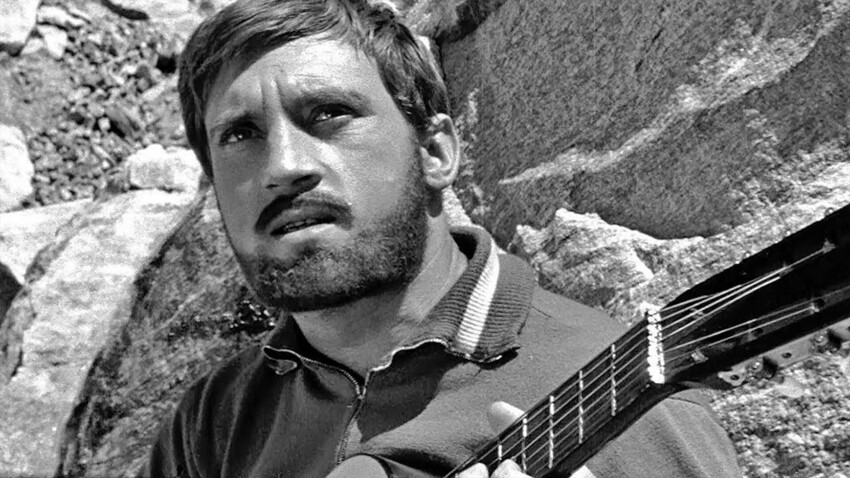
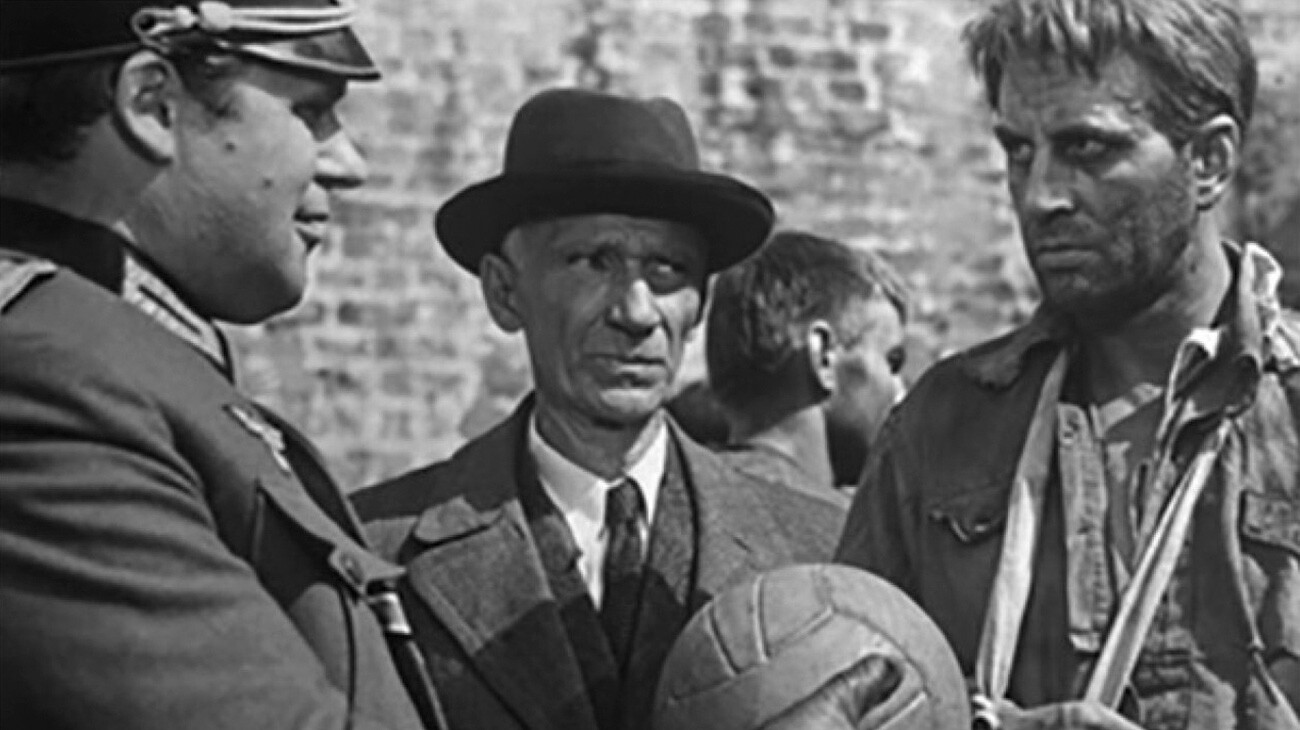
'Restless Clouds', the short novel by Alexander Borshchagovsky, on which the movie is based tells the story of the “deathmatch” that took place in Kiev on August 9, 1942, between F.C. Dynamo Kiev and German servicemen. The rules of the game were simple, but shocking: The Soviet soccer players had to lose, otherwise all of them would be shot. The story about the heroism of the Soviet soccer players is very moving: Aware of their impending doom, they preferred to take things to the bitter end rather than surrender.
Watch it here.
'O Sport, You Are Peace!', 1981
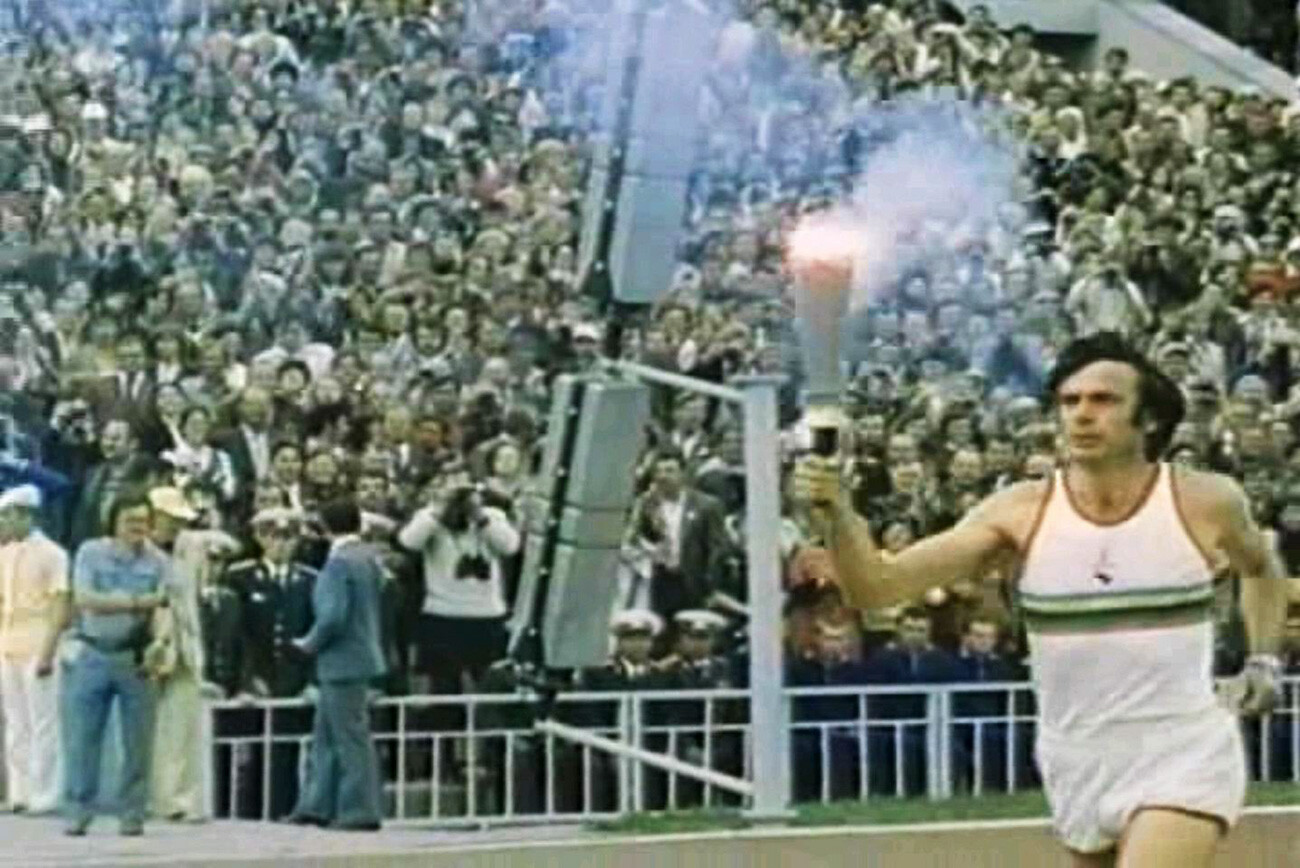
This documentary is a declaration of love for the 1980 Moscow Summer Olympics. It is a chronicle of the Games, showing the lighting of the Olympic flame in Greece, the competitions and the ceremony of saying goodbye to ‘Mishka’, the Olympic Bear (the official mascot of the Games). The film by Yuri Ozerov and Boris Rychkov was based on the work of almost a hundred cameramen: The footage of competitions is interspersed with interviews with participants, views of Moscow, glimpses of the city's cultural life and even scenes of something Soviet cinema for the masses was not used to - Christian and Muslim prayer services. The two-part documentary was not without its grandstanding, but it makes a very positive impression, nevertheless.
Watch it here.
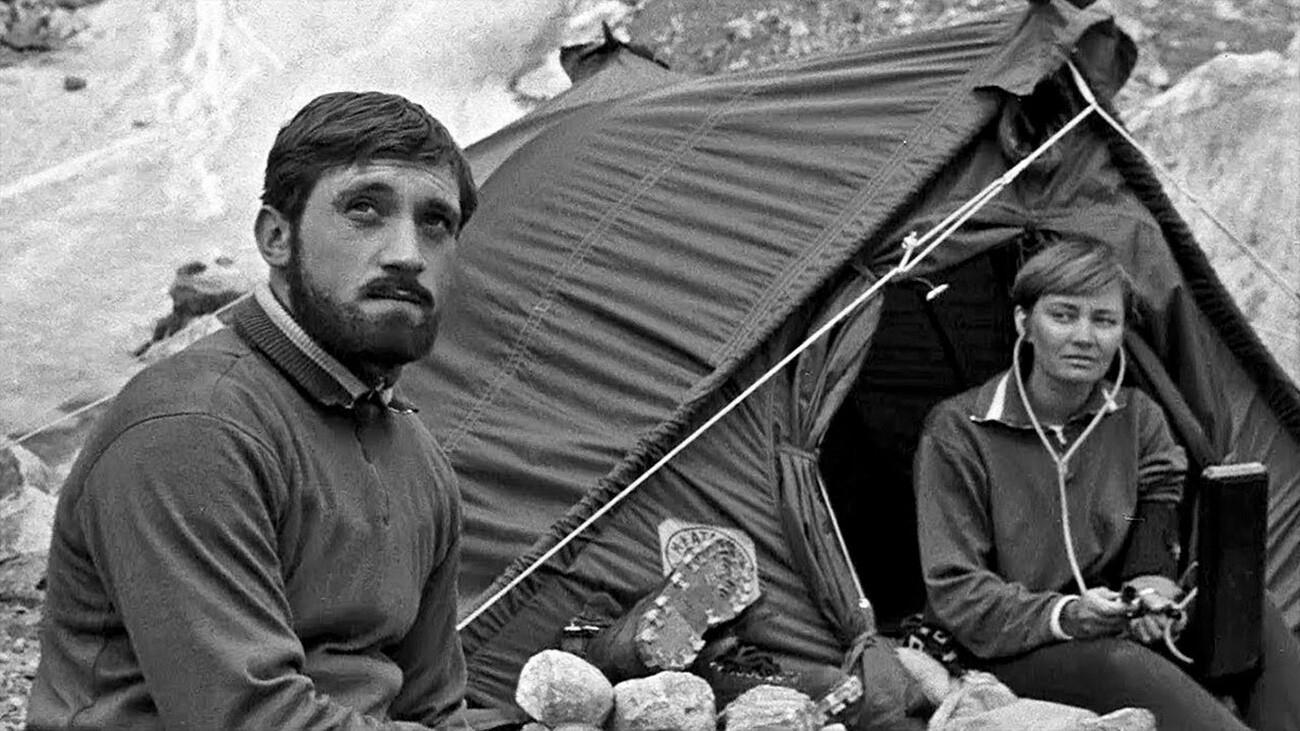
Admirers of legendary singer-songwriter and actor Vladimir Vysotsky know this drama about climbers caught in a snowstorm during their ascent of a summit by heart. The director was Stanislav Govorukhin. Vysotsky played the role of radio operator Volodya and performed his famous 'Song About a Friend' and 'To the Top' in the movie. To settle into their roles, the actors mastered mountain climbing techniques and even achieved the required training standards. The black-and-white movie conveys the menacing beauty of the mountains and tries to answer the question: Why do people try to conquer mountain peaks?
Watch it here.
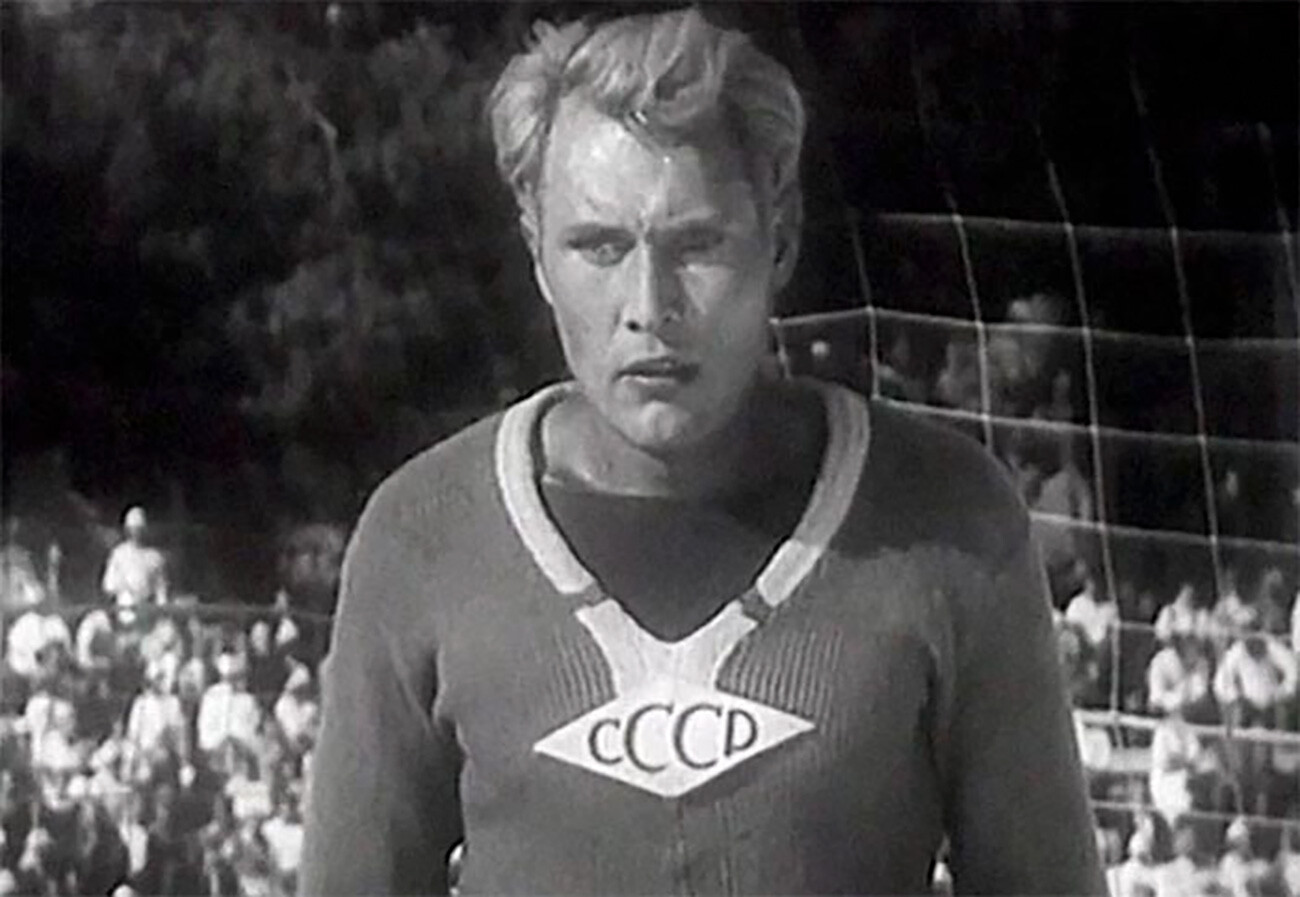
Writer Lev Kassil, who wrote the screenplay for Semyon Timoshenko's movie, was an avid soccer fan and was able to describe what was happening on the pitch so vividly and colorfully that readers felt they were watching a match with their own eyes. The first Soviet novel about sport later emerged from the script of 'The Goalkeeper'. The main protagonist, Anton Kandidov, carries watermelons on a boat along the Volga, catching and throwing them with such precision that he seems to be handling not fruit, but soccer balls. Spotting his talent, players from a factory team invite him to be their goalkeeper. On the road to fame, Anton will not only have to contend with his opponents, but also himself. The movie is also worth watching for its soundtrack: The famous ‘Sports March’ by Isaak Dunayevsky - i.e. the one that says: "Soviet athletes are stronger and faster than anyone else" was performed in it for the first time.
Watch it here.

An elegiac tribute by Elem Klimov to the everyday life of sport with music by Alfred Schnittke. Newsreel footage of competitions in Moscow, Philadelphia, Mexico City and Stockholm is interspersed with staged scenes and athletes' stories about their training and their achievements, the excitement and arguments of fans, and Bella Akhmadulina reading her poems off-screen. The documentary juxtaposes the most incongruous things in a paradoxical way: funny stories, historical inserts about Ivan the Terrible's favorite ‘oprichnik’ (member of the tsar's bodyguard corps), performances by The Beatles and people chewing. It all looks quite bizarre, but you can't take your eyes off the screen!
Watch it here.
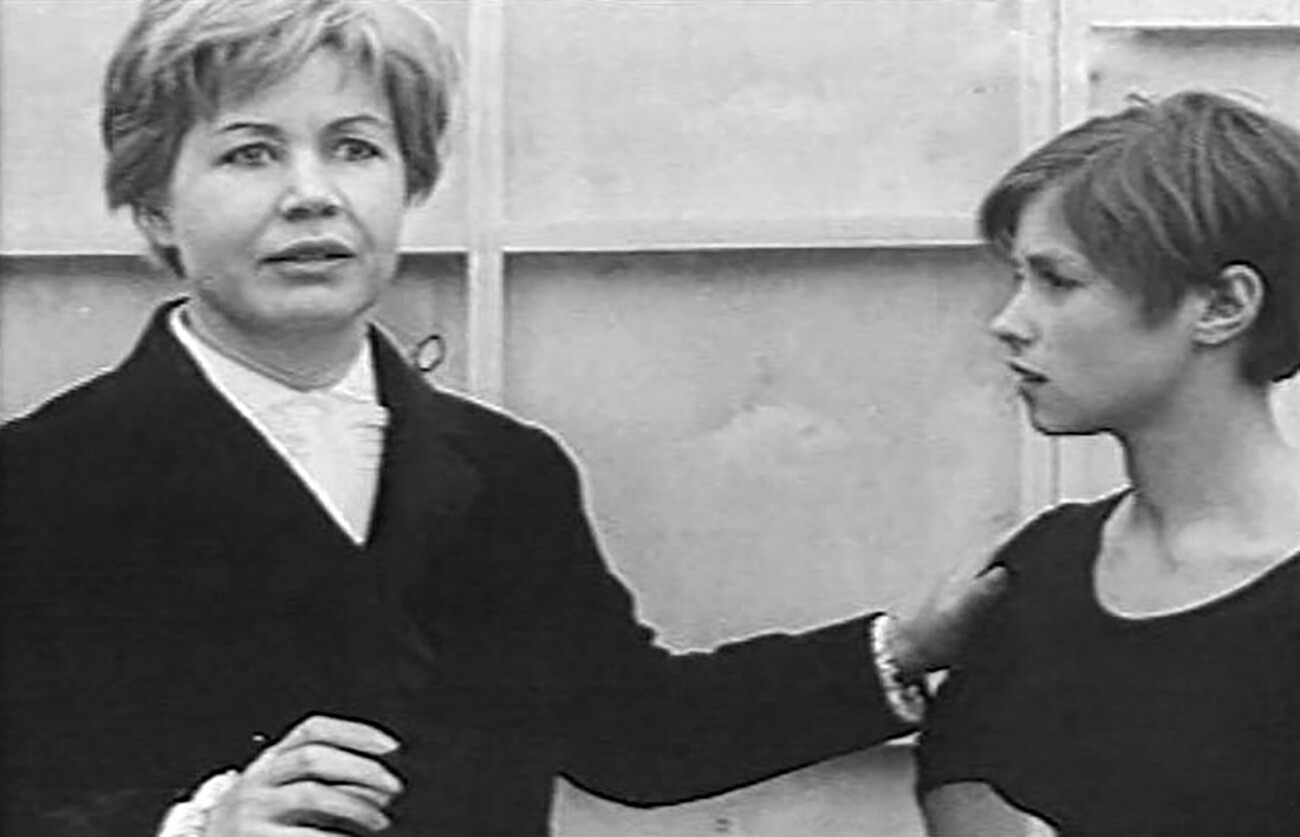
An understated drama about a gymnast named Valya, who joins the national team and witnesses the closing stages of the career of a celebrated sportswoman. The main protagonist, meanwhile, is taking her first steps in elite sport: The movie starts with her performing at a municipal festival and ends with Valya being picked for a competition instead of the gymnast she has always worshiped. Unlike a lot of sports movies, in which the protagonists are on a single-minded mission to win, 'The New Girl' gives the impression of a very lyrical movie, with the distinctive intonation that was the hallmark of ‘Thaw’-era cinema. Its chief focus is not so much sporting achievement as the protagonists' inner feelings about their own lives.
Watch it here.
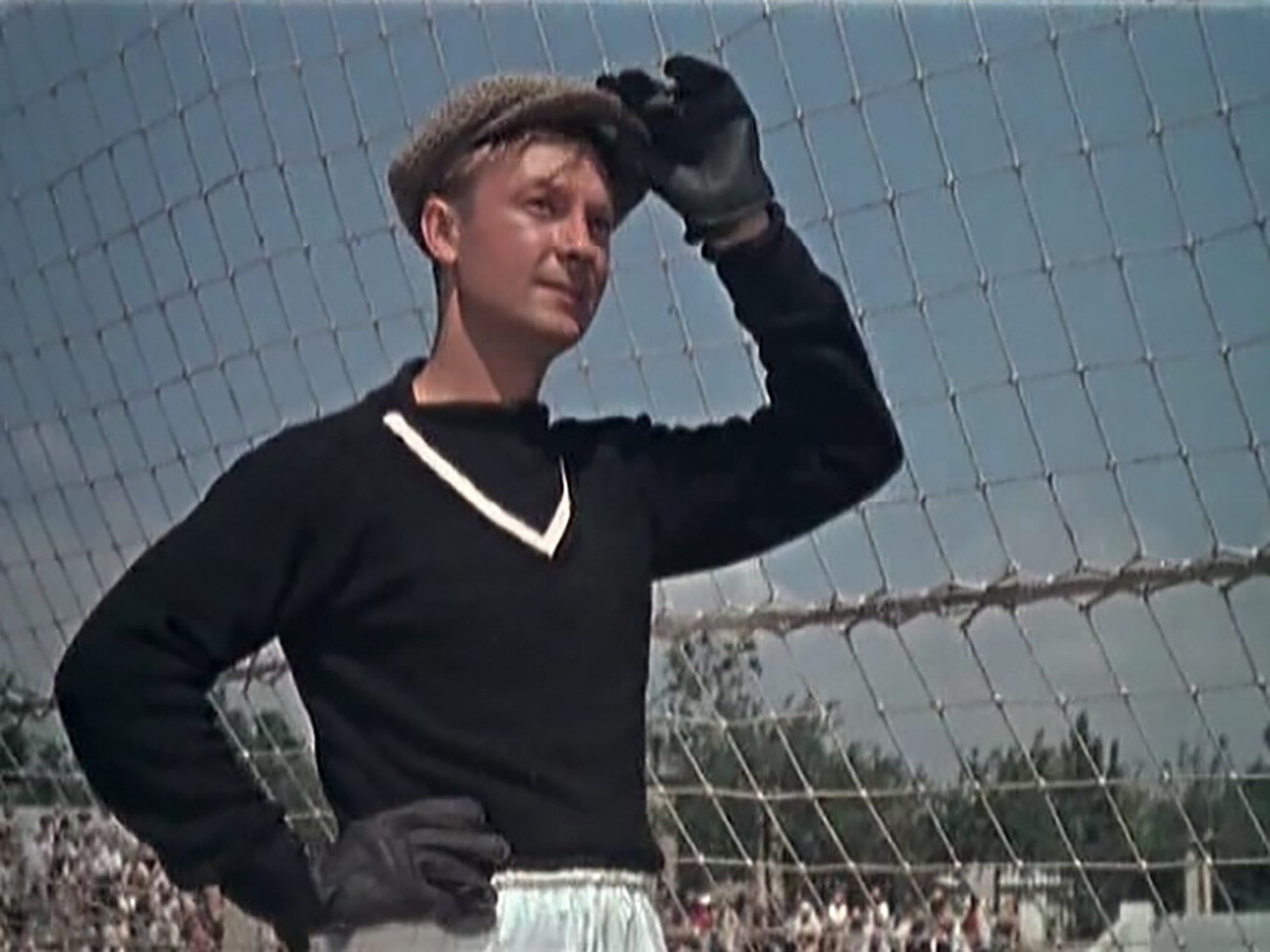
This is a musical comedy about soccer, featuring a romantic trip down the Volga River, a boxing match with an old man and the confessions of lovers. In the plot, an unassertive player named Vasya Vesnushkin spends his days on the substitute bench, but, one day, the outrageous behavior of his elder brother Sasha forces the manager to make a substitution. The younger Vesnushkin goes out on the field in place of his brother and manages to score two goals and then save a penalty, after filling in for his team’s injured goalkeeper.
Watch it here.
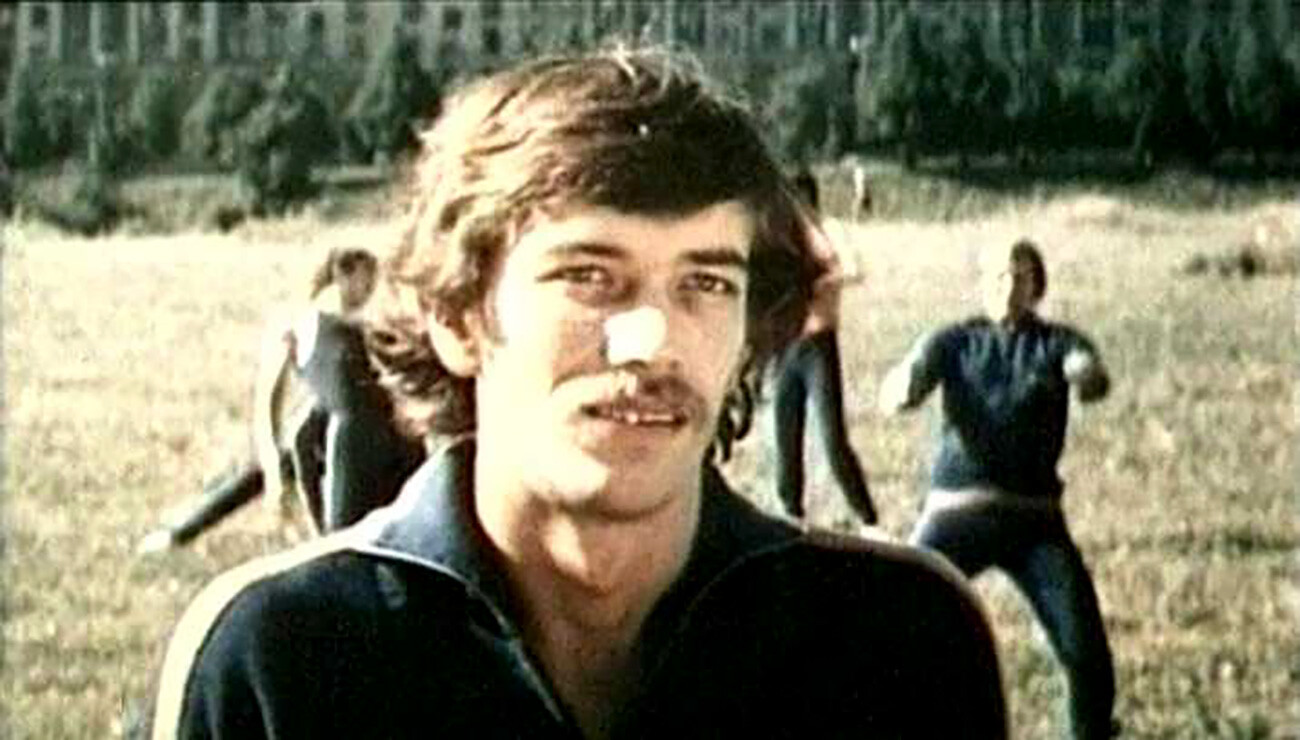
A man leaves his life as a sheep herder behind to play in a basketball team - and all for love. Yury Kulik-Kulikovsky does not like the sport, but agrees to join the team, when he learns that matches are to be held in towns where his favorite singer is appearing.
The plot might be slightly over-the-top, but the movie is punctuated with musical performances that will hold a particular appeal for fans of Soviet pop. Russian songstress-in-chief Alla Pugacheva sings off-screen.
Watch it here.
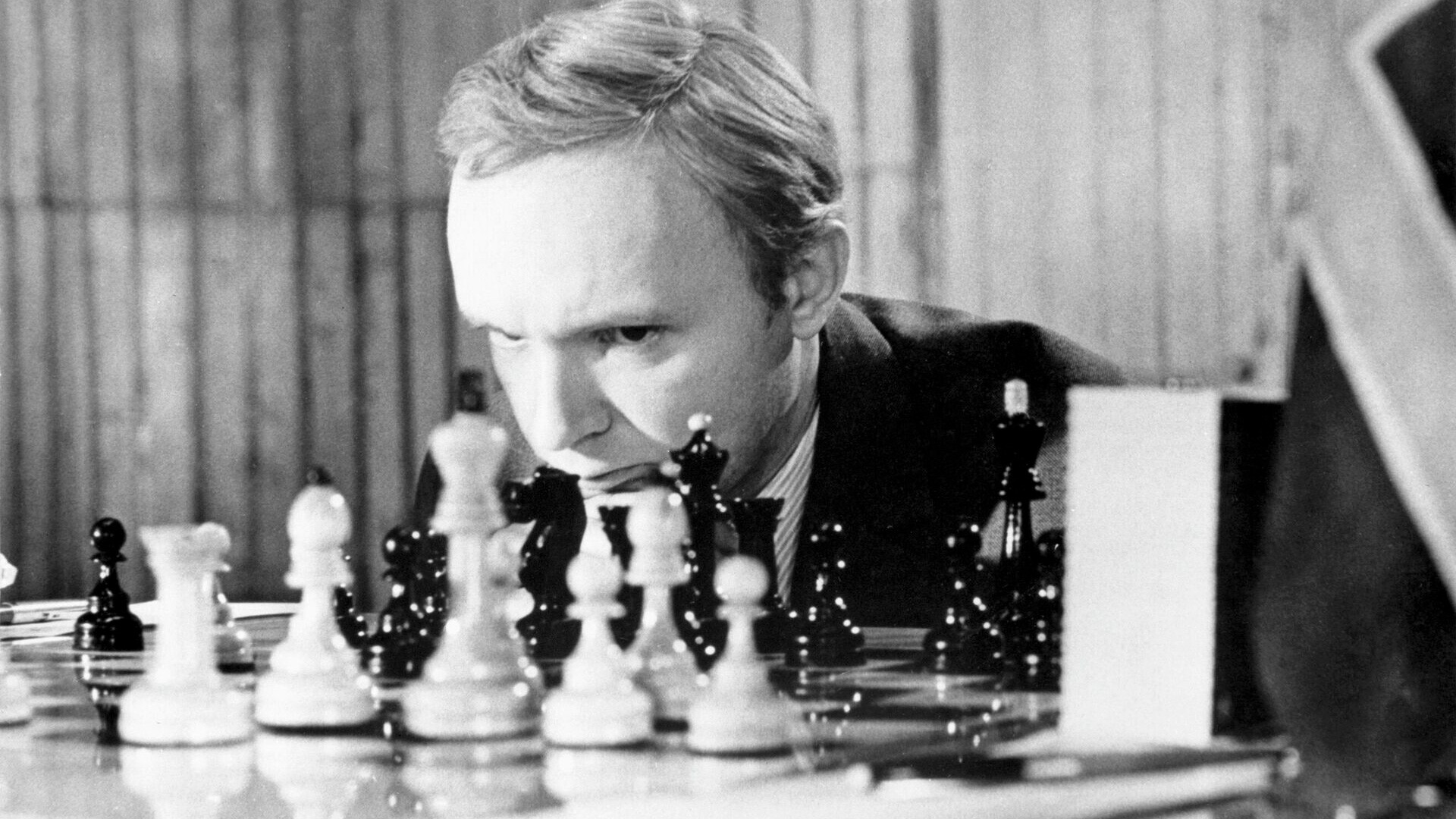
This movie about chess was exceptional for featuring the renowned grandmasters Viktor Korchnoi, Mikhail Tal, Yuri Averbakh, Alexander Kotov and Mark Taimanov. It's worth watching the movie just for their appearances on screen. But, also because the movie stopped being shown in the late 1970s after Korchnoi refused to return to the Soviet Union. So, it is also a kind of document of its times. The plot is centered on the story of a passionate chess player for whom the beauty of the game and not victory is more important. His devotion to chess overtakes everything else in the world and other things, like love, end up being cast aside.
Watch it here.
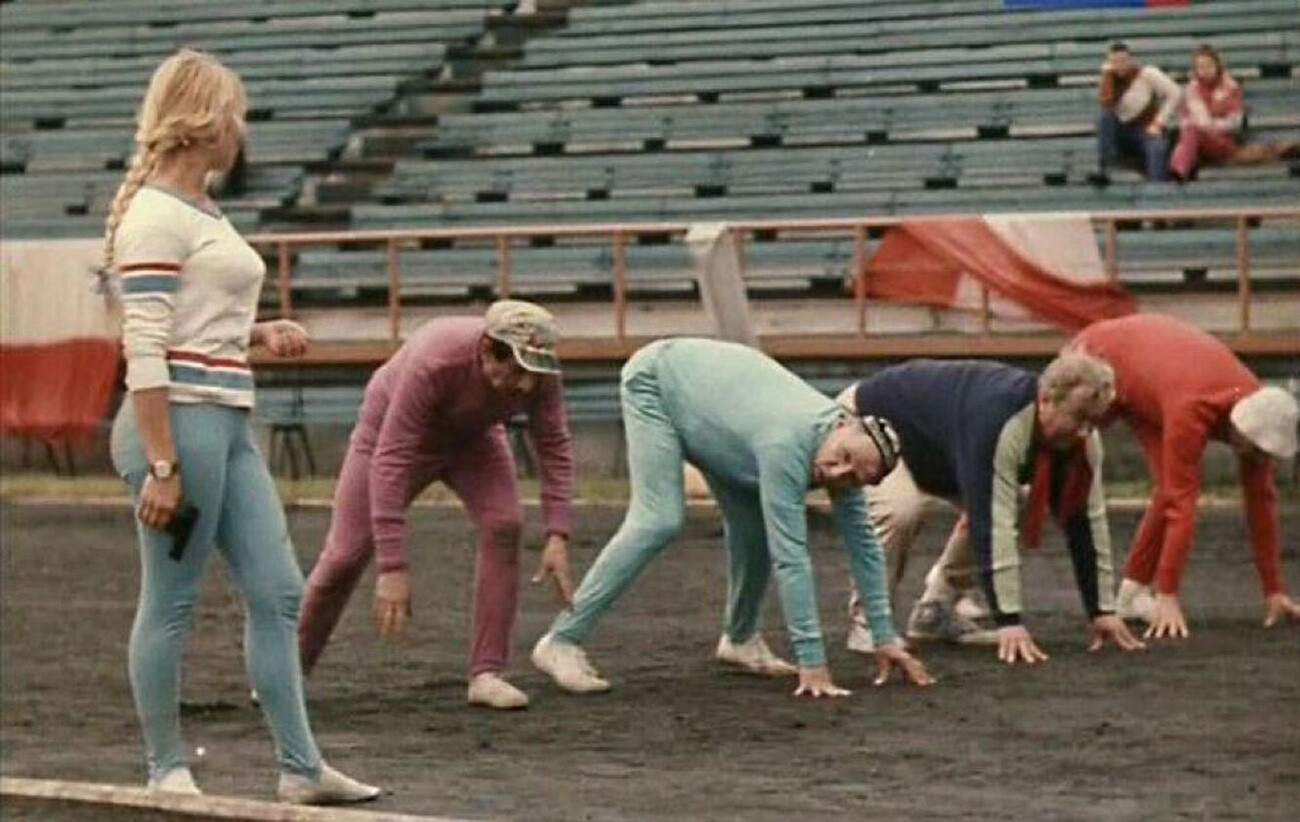
A lighthearted comedy about how age is no obstacle to sport, with inserted footage featuring Fantômas, the French screen villain who was all the rage at the time. Lena dreams of sporting records, but, instead, she is assigned to run a keep-fit class for pensioners. In despair, she decides to set them hugely difficult tasks to put them off coming to the lessons. But, the old men prove to be tough nuts to crack and they even manage to catch some wanted criminals. The movie used re-voiced fragments from Andre Hunebel's comedies ‘Fantômas’ (1964) and ‘Fantômas Unleashed’ (1965). In addition, there are specially filmed scenes, such as a close-up of Fantômas at the belfry of the Rostov Kremlin and others.
Watch it here.
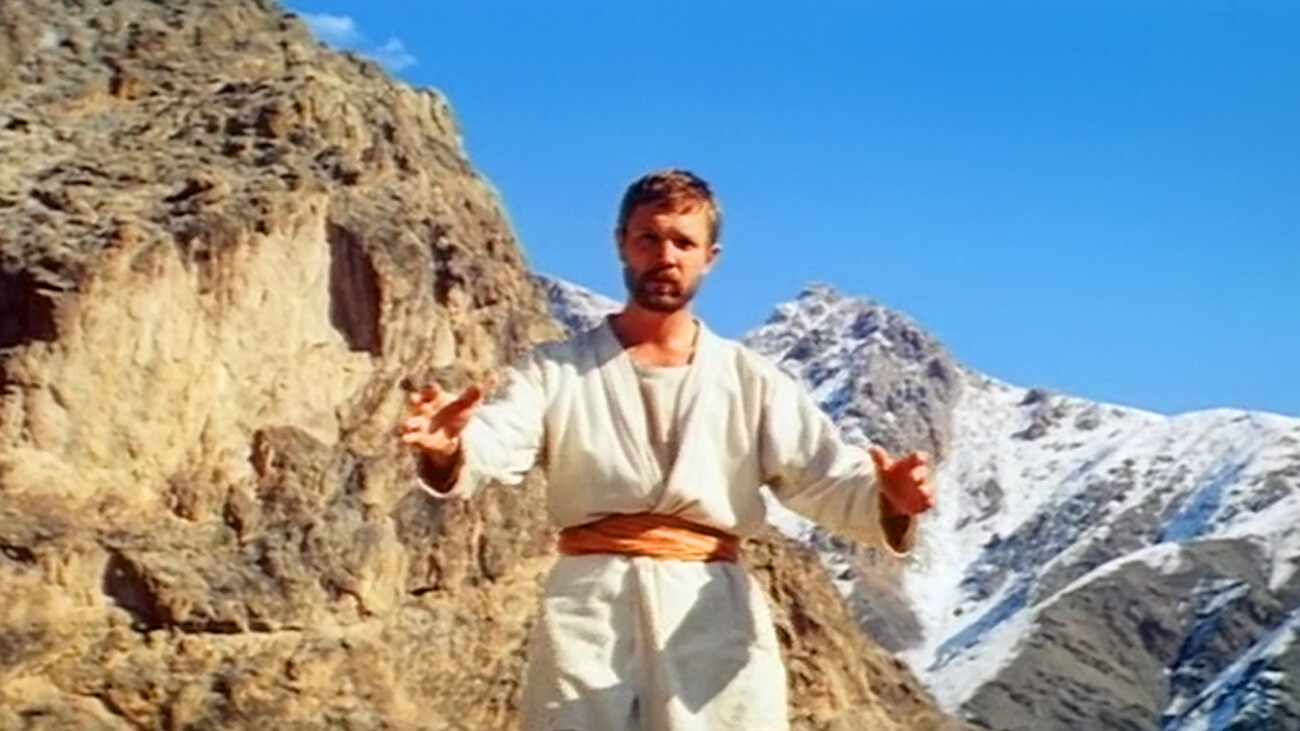
A freely adapted biopic about Anatoly Kharlampiyev, the founder of ‘sambo’ wrestling. According to the storyline, a Red Army man by the name of Khromov travels to Turkestan to study the national style of wrestling known as ‘kurash’, learns its techniques and idiosyncrasies and even becomes a ‘pekhlevan’ - a master of ‘kurash’. The movie is a good opportunity to discover how one of the youngest Olympic combat sports - self-defense without weapons (‘sambo’ is a Russian acronym derived from this phrase) - emerged.
Watch it here.
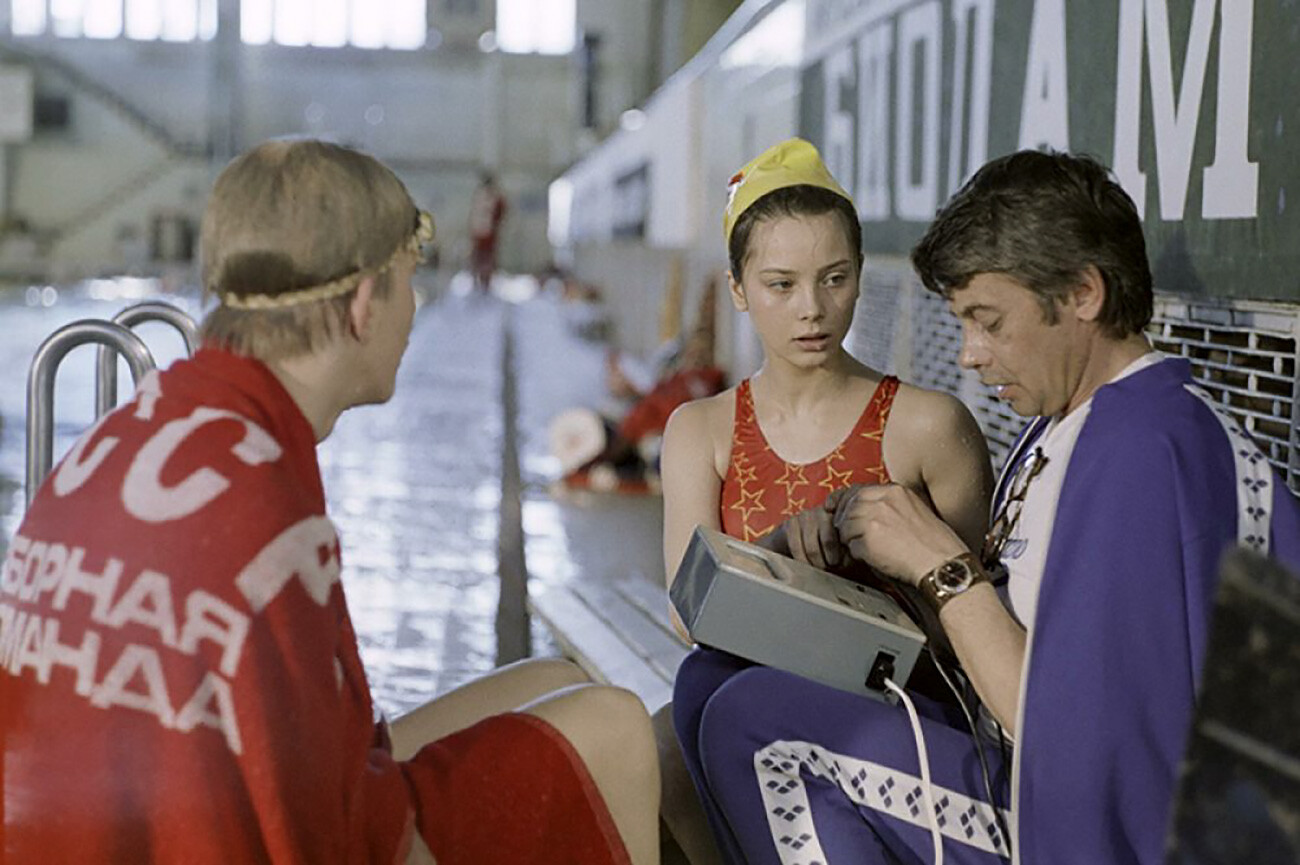
A drama about the fear of failure: A swimmer is remarkably fast at covering distances, but she can only put in her best performances in training sessions. In competitions, when the eyes of hundreds of supporters are on her, she gets flustered and loses her edge. Eventually, at the European Championships, she relinquishes her place in the team to another swimmer. 'A Moment Decides Everything' is about the importance of self-belief: Left to herself, the heroine swims the competition distance faster than her friend. But, the world record that she sets is destined to remain unrecognized.
Watch it here.
Dear readers,
Our website and social media accounts are under threat of being restricted or banned, due to the current circumstances. So, to keep up with our latest content, simply do the following:
If using any of Russia Beyond's content, partly or in full, always provide an active hyperlink to the original material.
Subscribe
to our newsletter!
Get the week's best stories straight to your inbox